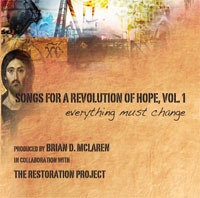
I think I have written before on the seven different biological events that cause aging or, rather, are aging itself. These range from the mutation of DNA to the increase of what we call free radicals (ask later) in the body. Some of the things that slow the aging process actually address some of them. Nothing out there today deals with all seven. However, if I could somehow slow it down to live to the end of this century (to around 2100) I am not sure I would want to be here.
The future scares me a bit. By that time we will have probably reached our peak global population at around 9 or 10 billion ( according to World Bank VP for Europe J. Rischard who also predicts a population of 8 billion by 2025 which implies a slowing of the growth rate towards the maximum population which makes sense). I can begin to imagine the water wars predicted by some novelists and columnists. Though I’m not sure there will actually be war over water, I do foresee skirmishes and small disputes (I’m not sure about a world war over water). You never know.
With Obama’s inauguration looming, many are saying he has a tough position. Reporters and commentators say that he has inherited a tough situation. So I wanted to look over what are the challenges facing Obama, the U.S., and the world in general. Specifically what are the global challenges? Though they may not be domestic challenges only, they are automatically domestic challenges to the U.S. whether or not it realizes that its fate and destiny is inextricably bound to that of the world.
A group of economists led by Bjorn Lomborg (a Danish economist) came together to form the Copenhagen Consensus they performed a cost-benefit analysis to prioritize the potential solutions to the world’s problems. Remember that for this list, if something is ranked low, it doesn’t mean it’s not important. It just means the potential solutions (currently out there) have less of an impact to reduce the impact of the problem than solutions to problems with better rankings. Does that make sense? Here it is.
http://copenhagenconsensus.org/
1. Hunger and malnutrition
2. Climate change
3. Conflicts
4. Financial instability
5. Water and sanitation
6. Subsidies and trade barriers
7. Population/migration
8. Communicable diseases
9. Education
10. Governance and corruption
You’ve seen the Millennium Development Goals before as we have talked about them. These 8 problems that the UN member nations pledged to address by 2015 seem to have the better of us. As of today we are behind on those goals. I won’t list the specific benchmarks they wanted to reach in reducing the problems, but here are the 8 areas to compare to your list of top 5.
1. Eradicate poverty and extreme hunger
2. Achieve universal primary education
3. Promote gender equality and empower women
4. Reduce child mortality
5. Improve maternal health
6. Combat HIV/AIDS, malaria, and other diseases
7. Ensure environmental sustainability
8. Develop a global partnership for development
The MDG’s led to
One Campaign http://www.one.org/
Data http://www.data.org/
Micah Challenge http://micahchallenge.org/
J. Rischard (mentioned earlier) made his own list under 3 categories.
6 Ecological Problems—Sharing Our Planet—global warming, biodiversity and ecosystem losses, fisheries depletion, deforestation, water deficits, maritime safety and pollution
6 Humanitarian Problems—increasing fight against poverty, peace-keeping (including conflict prevention and combating terrorism), making education for all, eliminating global infectious diseases, reducing digital divide, preventing/mitigating natural disasters
6 Regulatory Problems—reinventing taxation; creating rules for biotechnology; updating global financial architecture; stopping spread of illegal drugs; improving rules for trade, investment, and competition; creating protections for intellectual property rights; developing rules for e-commerce; improving regulations for international labor/migration
Rick Warren, pastor of Saddleback church in California and author of best-selling book “The Purpose-Driven Life” created the five-point PEACE plan (PEACE is an acrostic from the bold words)
1. Spiritual emptiness to be solved by Planting churches to proclaim the Christian gospel (8)
2. Selfish, lazy, ineffective, corrupt leadership which is solved by Equipping servant leaders (8)
3. Poverty addressed by Assisting the poor through various humanitarian aid (1)
4. Diseases addressed by Caring for the sick (4,5,6)
5. Ignorance addressed by Education the next generation (2,3,7)
This information comes from McLaren’s book “Everything Must Change” so I’m following his number system as well. The numbers in parenthesis show the connection to which MDG it corresponds to. Do you start to see the connection between all the lists? One more.
The United Nations University (research arm of the UN) made another list of, this time, 15 global challenges which they phrased in the form of questions to the world.
How can. . .
1. sustainable development be achieved for all?
2. everyone have sufficient clean water without conflict?
3. population growth and resources be brought into balance?
4. genuine democracy emerge from authoritarian regimes?
5. policymaking be made more sensitive to global long-term perspectives?
6. the global convergence of information and communications technologies work for everyone?
7. ethical market economies be encouraged to help reduce the gap between rich and poor?
8. the threat of new and reemerging diseases and immune micro-organisms be reduced?
9. we improve our capacity to decide as the nature of work and institutions change?
10. shared values and new security strategies reduce ethnic conflicts, terrorism, and the use of weapons of mass destruction?
11. the changing status of women help improve the human condition?
12. transnational organized crime networks be stopped from becoming more powerful and sophisticated global enterprises?
13. growing energy demands be met safely and efficiently?
14. scientific and technological breakthroughs be accelerated to improve the human condition?
15. ethical considerations become more routinely incorporated into global decisions?

Whew! Lots of problems. The question is what are you doing about it? Sometimes we view life as having a grander story for some a bigger part to play for a select few, and I definitely see that as true in earlier history. But there’s something different today. Today, it seems to me that we all have that grandeur within us (I’ll get more into this in a future update). I’ve been pondering lately how bad or good it would be if everyone (or almost everyone) just focused on these problems. Is that bad? I know it sounds bad. And I know we need people to do some basic things like producing food, shelter, clothing, good schools. But we have a lot of frivolous work in the world it seems. And I wonder if, say instead of pouring so much mental energy and time and money into things like campaigns, what would happen if more people joined in the essential fight for pursuit of life in its full measure for all peoples. I don’t think it’s that the few people who work for such things are the “chosen” ones. I think they are just the ones who understand its importance. No, “understand” is the wrong word. Realize is better. If we all did, maybe some work wouldn’t be as pressing or cogent. Perhaps what I say is nonsense. But I’m just thinking. It does seem, though, that because it is not recognized as pressing by a large portion of the able population, then the few who does realize must do the work otherwise, who will go? Who will serve? Who will act? Who will defend? Who will love?
I’m still trying to understand it in my head, but it’s the general problem of the doer and the funder. General thinking says we need person A, the one who goes out into the field into developing countries or in the streets/inner cities/rural areas of developed countries and works on infectious diseases and public health, primary education for everyone, peace and conflict resolution, ending hunger, etc. And then you need person B, the person who doesn’t work on any of that directly but gives money to person A to do person A’s work.
So if you remember, I’ve been criticized and asked “Who does more? You or Oprah?” To which I stumble and murmur and finally say “Oprah.” Then the response is “See. You should get a high paying job and then you can choose one child and fund that child’s education.” What does one say to that? Fund a child or teach hundreds of children? Who has more impact?
But it seems like if we all were doers we wouldn’t need funders. We all know there is enough money and enough food in the world that with proper redistribution none should go hungry while we transition people into healthy work and jobs and build the economies of regions around the world. But the political will to do it is absent. I always say we would not need such huge NGO organizations if everyone did a small part and took care of the poverty or homelessness on their street (granted, some of us live far away from that).
Do you remember one of my two crime stories in South Africa? Let me recant. There were homeless-looking people on the corner of my neighborhood that I would pass each day. They were on my heart. And I thought to myself and prayed “Lord, what can I do to help them in a lasting way. They’re here in my neighborhood. They’re my neighbors. What can I do?” Then one day someone broke into my house and attempted to rob us but flew the scene before taking things. The place was a mess and a few things broken. Well, one of the homeless people on the street gets food from our neighbor and gives information. He tells the neighbor who did it. Guess who? One of the guys I had been praying about to find a lasting way to help. Do you see the irony? I wanted to help these people in a lasting way. But before I could do that (or to them, since I was not doing that) my house was robbed. And I was robbed of stuff that I would have gladly given to him if he had asked—shoes, clothes, food, etc. I would have given it. But it gave me first-hand experience with the understanding that most crime is a symptom of need. In South Africa, with the 80% of the population (conservative upper estimate maybe) in dire need, the situation is drastically skewed more so than in any other country I have lived or visited. If our community had something to help provide for its people perhaps many of us would not have been robbed.






















